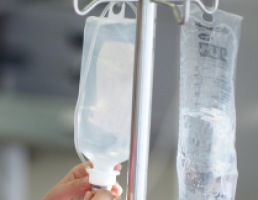
Investigators at Mass General Brigham have uncovered how resistance to chemotherapies may occur in some cancers.
Researchers focused on a pathway that harnesses reactive oxygen species (ROS) to kill cancer cells.
The study found that mutations to VPS35, a key player in this pathway, can prevent chemotherapy-induced cell death.
These results, published in Nature, could help pinpoint treatment-resistant tumours.
“ROS play an important role in healthy and diseased cells, but pathways that sense and control cellular ROS levels are not well understood,” said corresponding author Liron Bar-Peled, PhD, of the Krantz Family Centre for Cancer Research at Mass General Cancer Centre (MGCC), a member of the Mass General Brigham healthcare system.
“A clearer understanding of ROS could help us understand why chemoresistance occurs in some cases.”
Low concentrations of ROS are required for normal cell signalling, but higher levels of ROS can damage cells and contribute to diseases such as cancer and neurodegeneration.
Researchers know that mitochondria play an important role in ROS production, but it has been unclear if ROS-sensing proteins influence the mitochondria.
If they do, this could impact responses to some anti-cancer treatments.
To investigate, co-first authors Junbing Zhang, PhD, Yousuf Ali, PhD, and Harrison Chong, of the Krantz Family Centre for Cancer Research, and colleagues screened cancer cells for ROS-sensing proteins that might contribute to chemoresistance.
The screen identified mutations that increased treatment resistance, and the team traced two of them to a protein called VPS35.
Through further studies, they found that these mutations led to lowered ROS levels within the cell.
In addition, the investigators analysed VPS35 expression levels in 24 patients with high grade serous ovarian cancer (HGSOC), who received treatment at MGCC.
They noted that higher tumoural VPS35 levels were associated with improved treatment responses and with overall survival rates.
Source: Mass General Brigham